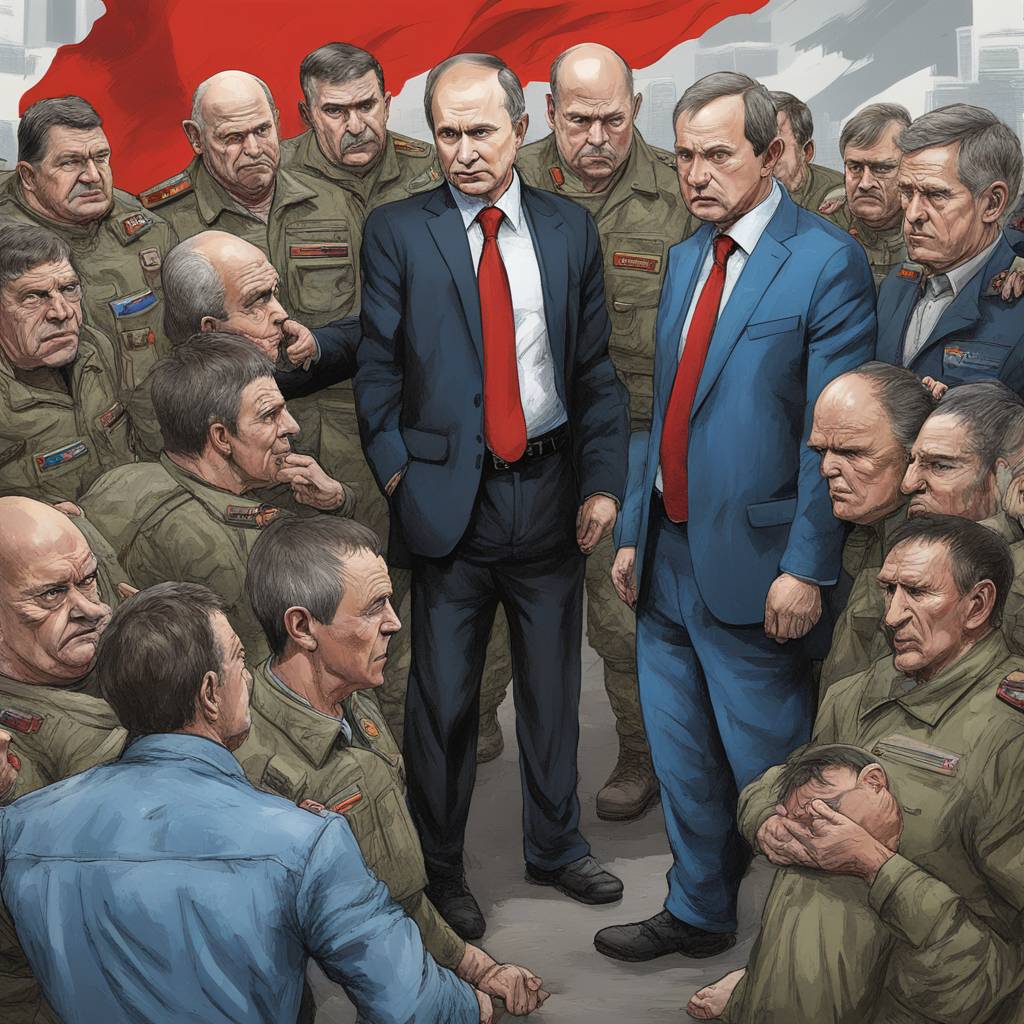The four men accused of carrying out Russia’s deadliest terror attack in decades appeared in a Moscow court on Sunday night. They were bandaged and battered, with one man having his partially severed ear covered and another in an orange wheelchair with injuries visible. Videos of the men being tortured during interrogation had circulated widely on social media since Saturday, in what analysts believed to be a retaliation for the concert hall attack they were accused of committing. The brutal treatment of the defendants in court was intended as a sign of revenge and a warning to potential terrorists, highlighting the extent to which Russian society has become militarized and tolerant of violence since the war in Ukraine began.
The flagrant display of torture in this case demonstrated the acceptance of new methods of conducting war and the normalization of violence in Russian society. The gruesome videos were circulated to show the consequences to those who may plan terrorist attacks and to showcase the revenge for the suffering caused in the terrorist attack. The videos were aired on TV, representing a new low for the Russian state, according to human rights organizations. The torture allegations were met with approval by former President Dmitri A. Medvedev, who called for the killings of all those involved in the attack. The brutal treatment was seen as a form of prevention to deter others from committing similar crimes.
Although the Russian Constitution outlaws torture and the country is party to the UN Convention Against Torture, defense lawyers would normally seek to have testimony extracted under torture thrown out because it is unreliable. The aftermath of the Moscow terror attack brought up comparisons to the legal challenges faced in the United States after the Sept. 11 terrorist attacks. The trials of extremists in Russia are generally closed, making it difficult to assess the extent to which defense lawyers object to torture practices. In this case, the judge largely ignored the physical state of the defendants, highlighting the lack of attention to due process in the legal system.
The release of videos showing the torture was seen as a signal to the military that gruesome violence was now acceptable and encouraged, according to security experts. By using torture as a method of intimidation, the authorities were sending a message to those who are not aligned with the Kremlin. Activists and journalists called for condemnation of both the terrorists and the torture used on them, emphasizing that torture is not a normal or acceptable practice. The incident raised concerns about the normalization of violence in society and the potential impact on future cases involving activists and journalists.


